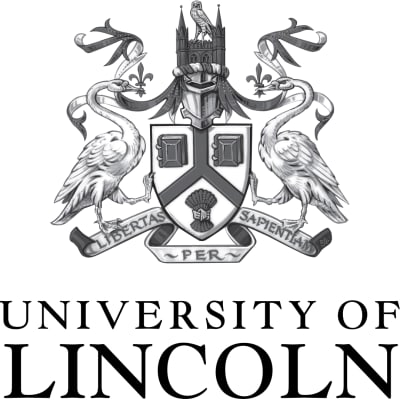
MSc Logistics and Global Operations
University of Lincoln

Key Information
Campus location
Lincoln, United Kingdom
Languages
English
Study format
On-Campus
Duration
1 - 2 year
Pace
Full time
Tuition fees
Request info
Application deadline
Request info *
Earliest start date
Request info
* most of our postgraduate courses have no specific closing date for applications. Please allow enough time for your application to be considered prior to the start date. If you are an international student you may need to factor in time for your visa application. We would advise you to apply as soon as possible
Discover Lincoln Wherever You Are in the World
Our webinars, subject masterclasses, question and answer sessions, and student panel talks are a great way to discover what it is like to live and study at the University of Lincoln.
Introduction
Employers are increasingly looking to recruit graduates who can demonstrate that they have the highlevel skills and abilities to succeed in global logistics management. MSc Logistics and Global Operations at the University of Lincoln has been designed with these employer expectations in mind.
The course provides students with the opportunity to explore practice in the context of relevant contemporary theory and research in the field of Logistics Management from an international perspective.
MSc Logistics and Global Operations seeks to develop the strategic vision of students, focusing on the development of creative thinking and proactive management. The programme recognises that all organisations, local and global, are constantly changing and seeks to ensure that managers develop the necessary knowledge and competencies to cope with this. The programme of study allows for context and situation specific learning.
Lectures, seminars, case studies, and guest speakers aim to provide students with a rich and thorough understanding of the subject. It is expected that students successfully completing the course will be prepared for a career in management or consultancy in areas related to logistics and operations at local and global scales.
This course has been accredited by the Chartered Institute of Logistics and Transport (CILT) and the Chartered Institute of Procurement and Supply (CIPS).
The programme is available for either a September or February start.
Prioritising Face-to-Face Teaching
At the University of Lincoln, we strive to ensure our students’ experience is engaging, supportive, and academically challenging. Throughout the Coronavirus pandemic, we have adapted to Government guidance to keep our students, staff, and community safe. All remaining Covid-19 legal restrictions in England were lifted in February 2022 under the Government’s Plan for Living with Covid-19, and we have embraced a safe return to in-person teaching on campus. Where appropriate, face-to-face teaching is enhanced by the use of digital tools and technology and may be complemented by online opportunities where these support learning outcomes.
We are fully prepared to adapt our plans if changes in Government guidance make this necessary, and we will endeavour to keep current and prospective students informed. For more information about how we are working to keep our community safe, please visit our coronavirus web pages.
Industry Expertise
The University of Lincoln is the recognised preferred provider for academic development opportunities in logistics and operations for the UK Ministry of Defence. It offers defence programmes in logistics and operations at degree, masters, and PhD research levels. The recent COVID-19 pandemic has seen academic experts at the University make a telling contribution to the response effort across all elements of the logistics and supply chain discipline.
Students on this programme can benefit from working alongside an experienced team of staff consisting of academically and professionally qualified lecturers with relevant industrial experience. They are able to engage in real-world projects and attend guest lectures from visiting speakers drawn from across a wide cross section of business sectors and industrial expertise.
Working in Partnership
Lincoln International Business School works with students and organisations to enhance the contribution of business to society. For students, that means developing their business skills and knowledge to improve their career readiness.
The University of Lincoln is a member of AACSB, a global nonprofit association connecting educators, students, and businesses to achieve a common goal: to create the next generation of great leaders.
"This information was correct at the time of publishing (July 2023)"
Admissions
Curriculum
- Business Logistics in a Digital World (Core)
- Decision Analysis for Managers (Core)
- Dissertation (Core)
- Global Procurement and Supply Strategy (Core)
- Operations and Process Management (Core)
- Project Planning and Management (Core)
- Research Methods and Design (Core)
- Strategy Making (Core)
- Community Organisation, Sustainability and Development (Option)†
- Disaster Management (Option)†
- Group Consultancy Project (Option)†
- Humanitarian Logistics (Option)†
- International Entrepreneurship (Option)†
- Teams and Leadership (Option)†
How You Study
The programme combines generic modules in business and management with more specialist modules in logistics, operations, and procurement and supply chain management.
The generic modules are designed to provide students with the opportunity to develop an understanding of how people, and other resources are managed in organisations. Students are introduced to strategy and decision analysis as well as to approaches to address the challenges associated with successful project management. The specialist modules aim to provide the knowledge and techniques to analyse, appraise, and contribute to the design and management of successful logistical and global operations. Students are also able to choose one optional module from a broad crosssection of business disciplines, enabling them to complement their final award with an understanding of an additional business management skill and/or area of expertise.
During the programme students may have the opportunity to visit a company to get a better understanding of how logistics operates in practice. Students have previously visited a Caterpillar Site in Leicester. All costs related to this trip are covered by the School.
The taught element of the programme consists of seven compulsory modules and one optional module. Optional modules will be offered across the suite of Lincoln International Business school's Masters Level degree programmes and will be delivered with the stipulation that a minimum of ten students elect to take them. Timetabling arrangements may limit the availability of modules to some students. As these options reflect staff research interests, they may also change over time.
Core modules:
- Global Procurement and Supply Strategy
- Operations and Process Management
- Business Logistics in a Digital World
- Decision Analysis for Managers
- Project Planning and Management
- Research Methods and Design
- Strategy Making
Optional modules:
- Community Organisation, Sustainability, and Development
- Disaster Management
- Group Consultancy Project
- Humanitarian Logistics
- International Entrepreneurship
- Teams and Leadership
The programme concludes with the dissertation which is designed to encourage innovation and diverse pathways to the final assessed submission. In this respect, the dissertation is an extended project that can accommodate a range of independent practically focused work.
Contact hours and Independent Study
Each module typically consists of two or three weekly teaching hours over a teaching term. Four modules are usually studied per term, equating to eight to 12 hours per week. Parttime students usually study two modules per term, equating to four to six hours of contact time per week. Hours of study can vary from term to term for both full and parttime students and can be spread throughout the week.
Postgraduate level study involves a significant proportion of independent study, exploring the material covered in lectures and seminars. As a general guide, for every hour spent in class, students are expected to spend at least four to five hours in independent study. For more detailed information please contact the Programme Leader.
How You Are Assessed
A variety of assessment methods are used during this course, including essays, examinations, oral presentations, and practicals. These assessments are designed to develop the skills needed for a career in the sector.
The University of Lincoln's policy on assessment feedback aims to ensure that academics will return in-course assessments to students promptly - usually within 15 working days of the submission date.
Entry Requirements 2023-24
Honours degree or equivalent. (Professional experience will also be considered. Please contact the programme leader for further information).
If you have studied outside of the UK, and are unsure whether your qualification meets the above requirements
Overseas students will be required to demonstrate English language proficiency equivalent to IELTS 6.0 overall, with a minimum of 5.5 in each element.
If you do not meet the above IELTS requirements, you may be able to take part in one of our Pre-session English and Academic Study Skills courses.
These specialist courses are designed to help students meet the English language requirements for their intended programme of study.
Accreditations and Memberships
This course has been accredited by the Chartered Institute of Logistics and Transport (CILT) and the Chartered Institute of Procurement and Supply (CIPS).
Research at Lincoln International Business School
Academics from MSc Logistics and Global Operations are involved in the University of Lincoln’s Marketing and Supply Chain Research Group (MaSC).
MaSC focuses on the development of knowledge which supports value creation for market, chain, and network stakeholders. Their research concerns value chains (supplier, customer, and consumer) and the building of social and resource sustainability within a network context.
Gallery
Program Outcome
How You Study
MSc Logistics and Global Operations can be studied full-time or part-time.
The Program combines generic modules in business and management with more specialist modules in logistics, operations, and procurement and supply chain management. The generic modules are designed to provide students with the opportunity to develop an understanding of how people, and other resources are managed in organisations. Students are introduced to strategy and decision analysis as well as to approaches to address the challenges associated with successful project management. The specialist modules aim to provide the knowledge and techniques to analyse, appraise, and contribute to the design and management of successful logistical and global operations.
Each module typically consists of two or three weekly teaching hours over a teaching term. Four modules are usually studied per term, equating to eight to 12 hours per week. Part-time students usually study two modules per term, equating to four to six hours of contact time per week. Hours of study can vary from term to term for both full and part-time students and can be spread throughout the week.
Postgraduate level study involves a significant proportion of independent study, exploring the material covered in lectures and seminars. As a general guide, for every hour spent in class, students are expected to spend at least four to five hours in independent study.
Scholarships and Funding
Several scholarship options are available. Please check the university website for more information.
Program Tuition Fee
Career Opportunities
This programme is designed to prepare students for a number of careers in operations management, logistics, distribution, transport, retail, consultancy, and other related areas. Former students have been hired by UK organisations such as Bombardier, Jaguar/Land Rover, and RB.
The University Careers and Employability Team offer qualified advisors who can work with you to provide tailored, individual support and careers advice during your time at the University. As a member of our alumni we also offer one-to-one support in the first year after completing your course, including access to events, vacancy information and website resources; with access to online vacancies and virtual and website resources for the following two years.
This service can include one-to-one coaching, CV advice and interview preparation to help you maximise your future opportunities. The service works closely with local, national and international employers, acting as a gateway to the business world.